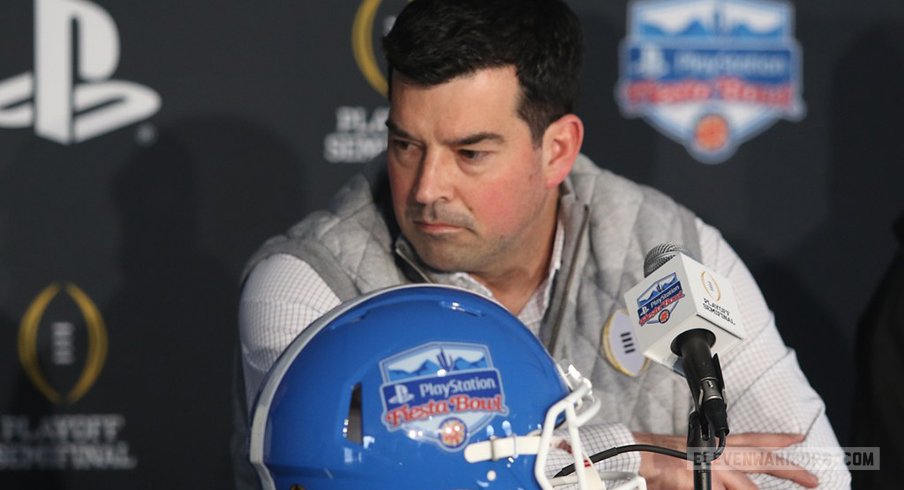The Big Ten made a bold move two weeks ago when it canceled non-conference competition for all fall sports, including the 2020 football season, as a result of the coronavirus pandemic.
At the time, it felt like the first of many dominoes to fall for this year's college football season. That notion was reinforced when the Pac-12 followed suit one day later and also canceled non-conference games for its fall sports.
With the Big Ten and Pac-12 making that move, it put pressure on the remaining Power 5 conferences to do the same. But as of this writing, the ACC, Big 12 and SEC are still planning to play non-conference games.
Alabama, which was scheduled to open its 2020 season against USC at AT&T Stadium in Dallas, is now searching for a replacement since the Pac-12 banned non-league play.
“The opportunities will be there,” SEC commissioner Greg Sankey said when the cancellations were announced. “We’re not alone in having lost non-conference games because of other conference decisions, and so, all of these football programs that have lost opportunities are now looking for games, as well.”
And just yesterday, University of Texas athletic director Chris Del Conte made his intentions to play a full schedule very clear.
Texas AD @_delconte says this morning, "Were planning on starting football Sept. 5 against South Florida. We are planning to play a 12-game schedule as of today."
— Kirk Bohls (@kbohls) July 22, 2020
“As of today” is the key phrase from that quote. The trio of Power 5 conferences still have some important decisions to make, and it would be surprising if their schedules remained unchanged a month and a half from now.
Take Florida State, for example. The Seminoles are scheduled to host West Virginia on opening weekend, then travel to Boise, Idaho for a matchup against Boise State in Week 3. That's an enormous amount of travel for a couple of programs traveling to and from the hottest of current coronavirus hotbeds.
But what happens if the unlikely occurs and the ACC, Big 12 and SEC move forward with a 12-game schedule? However improbable that may seem, how would that impact Ohio State and its playoff hopes this fall?
It's hard to imagine how the College Football Playoff committee would evaluate the four best teams if the schedules for the candidates look drastically different. The Buckeyes had a marquee showdown against what would've been a top-10 Oregon team, on the road for that matter, sandwiched between two home games against MAC opponents to start the season.
With that showcase game off the schedule, Ohio State's resume is already lesser-than, and a game has yet to be played. Texas is still planning on facing LSU in Week 2, the same day Tennessee is set to make a trip to Norman for a game against Oklahoma. Clemson and Notre Dame are on the schedule for November 7.
To the Big Ten's credit, reports indicate the league is trying to add a 10th conference game to the schedule for 2020. That would at least give the Buckeyes 10 matchups against Power 5 opponents, likely matching the rest of the playoff contenders who have two non-Power 5 games on their non-conference docket.
Would Ohio State's hypothetical 10-game schedule be enough to stand next to the resume of, say, an SEC champion who also beat a highly regarded non-league opponent? Would the playoff committee have enough context to establish the strength of the Power 5 conferences when two of them only played league competition?
These are questions the playoff committee never had to answer before, but they might have to this fall.
If the ACC, Big 12 and SEC really do intend on moving forward with a 12-game schedule, and the enormity of that if can't be stressed enough, then this year's playoff committee is going to have a unique challenge in weighing the resumes of the top contenders.


